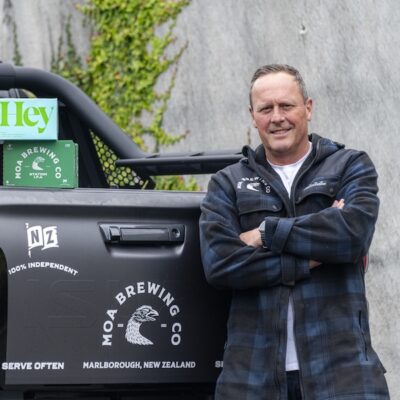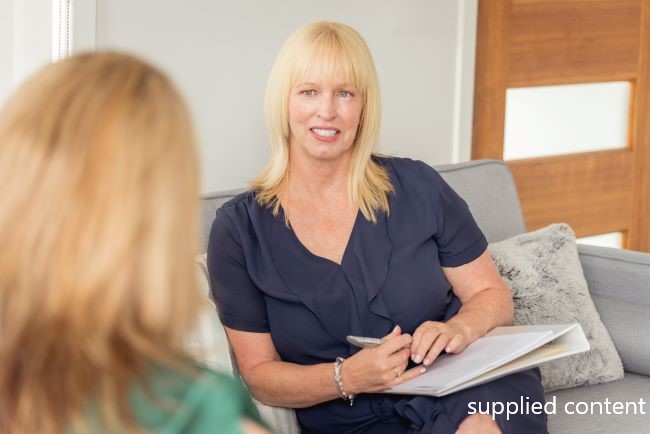WHY SUSTAINABILITY STILL MAKES BUSINESS SENSE
For too long businesses have been getting the wrong message about sustainability.
As a result many still see it as a distraction from economic growth, rather than a powerful means to prosper in the long term. Glenn Baker reports on the new thinking.
|
While the economic storm clouds have been gathering and intensifying around the world, there has been a paradigm shift occurring on the subject of sustainability – a subject that traditionally many business owners consigned to the ‘too-hard’ basket. Mindsets are changing – and it couldn’t happen at a more opportune time. In a nutshell, as Sustainable Advantage director Nick Jones puts it, “we’ve all got to stop preaching to business owners, because that’s a turn-off. “The time for preaching is over; the time for debating is over. Businesses need pragmatic and practical help to get into a proactive mode. It’s about empowering business – sustainability will help you deal with the short term and then form your overall, long-term business strategy,” says Jones. “Short term you focus on economic sustainability in the form of sound financial management strategies to survive the storm – but don’t lose sight of what’s coming down the track. There are risks ahead, but by looking through a new lens of sustainability, when the skies clear you’ll be in a much stronger position than your competition.” (See his separate article “An Insomniac’s Guide for Surviving the Triple Crunch”.) This new thinking, says Jones, is best summarised in a recent blog by Peter Salmon, head of Moxie Group, a sustainable design consultancy based in Salmon attended a Sustainable Brands international conference in “The sustainability debate has been positioned all wrong,” he writes, “as an environmental problem, as something business needs to account for, a risk to be managed or a tax to be paid.” Sustainability is being pushed aside as a luxury while business hunkers down to survive, he argues. “But it’s not an and/or situation. The answer is and/and.” While ‘Sustainability 1.0’ was all about compliance, reductions and limits, the 2.0 version is more of an outcome-focused all encompassing approach, says Salmon. “It’s a process that builds prosperous businesses creating innovative products and services, businesses founded on good financial results, responsible use of resources and community well-being.” It’s time to look at sustainability in a whole new light. Salmon is not alone in believing that there are huge opportunities all over the place for companies willing to reinvent themselves and look at the market through the lens of sustainability. Moxie has plenty of proof that it works via its NextPlays Lab programme – an intensive two-day workshop that helps businesses transform through ‘sustainable innovation’. It highlights 70 case studies from all over the world – clever companies successfully implementing sustainable business innovations (for more visit www.thenextplays.com ). Start thinking about opportunities, urges Salmon. Identify where the value proposition is for your customers and how you can create a competitive advantage. Turn your mindset around from thinking “let’s go carbon neutral” to “let’s run with this great idea” he suggests.
Strategies forward While the economic crisis may have provided a temporary distraction, the drivers behind the need for improving sustainability performance of businesses haven’t changed. Economic and industrial activity is still impacting on the environment, the Government regulators are still looking for supply chain responsibility, and people are more concerned about their health and wellbeing than ever, which is driving them to consider making more informed choices. At a global level, big businesses are pushing on with greening their supply chains and that is trickling all the way down to small businesses. Simon Harvey, a director at business consultancy BusinessLAB, encourages businesses to look for efficiencies from a long-term sustainable perspective and says there are big savings to be made. “Look at things like reducing transport and travel costs, leasing rather than purchasing, opting for the latest eco-friendly technology to combat rising energy prices. “Ask yourself ‘how do I want my business to look in five years?’ Business is much like a fruit tree – you might have to prune it (contain costs and reshape) in the short term – but ultimately you’re aiming to grow a healthy tree that will provide good fruit that people want to buy in the long-term.” A good starting point, suggests The great thing about sustainability, says He also encourages business owners to pursue an appropriate accreditation – it might be a Green Qualmark or Environmental Choice accreditation. “Just don’t stop there – keep looking forward to continually improve sustainable performance, because if you don’t your competitors will. Sustainable initiatives needn’t be expensive – and it’s a good opportunity to engage and motivate staff – not to mention, hang onto them. Your people could end up driving management – it’s extremely motivating and great for morale,” says
The best sustainable strategies are simple, relevant and short – this according to Raechel Cummins, a director of Becon Limited (a dry waste materials recovery facility based in Sustainable business strategies typically are made up of three core elements, says Cummins: environmental, social and economic. Step one is to work through what issues concern you and identify why, she says. It may be your carbon footprint (because you want to minimise electricity and fuel costs), your waste (minimise consumption and costs), your reputation (your product claims must stand up to scrutiny or you want to gain market access), your staff management and relationships (because you need a healthy, productive workforce and to comply with the HSE Act) or your reliance on your community (you require resource consents to operate). • The Ministry for the Environment website. It uses • The |
While businesses may understandably initially focus on the cost aspect of ‘greening’ their business, it’s also important to acknowledge the potential for an upside in terms of market share and revenue – this according to Melissa Munro, a director of Offset The Rest, a Nelson-based carbon emission measurement and reduction consultancy. Munro reminds business owners of the rising tide of ‘solution seekers’. First identified by Moxie in a 2007 online survey of Addressing your carbon footprint Much of the focus surrounding sustainability centres on the carbon footprint of businesses – or more specifically: what is your emissions level? How can it be reduced? And for those emissions that you have to live with – how can they be offset through purchasing credits, so that your business becomes carbon neutral? (Carbon credits are sold in units of one tonne of CO2 equivalent. So one carbon credit is equal to one tonne of CO2 remaining in the ground.) Munro, who along with fellow director Jane Peterson, runs one of the many new consultancies operating in this space, says becoming carbon neutral in a credible manner not only requires that you calculate your footprint in accordance with the highest international standards, but it also hinges on your choice of offsets. “The choice of offset should reflect your commitment to quality, integrity, and sustainable practices, and this choice therefore carries reputational risk for your company. “It is important to understand the quality of the offsets you purchase. Offset the Rest has chosen to invest only in projects issuing Gold Standard carbon credits that have undergone a rigorous validation and verification process, and are considered the most reputable source of voluntary carbon credits in the market.” (Offset the Rest is also the only company in Asia Pacific named as one of the top 30 carbon offset providers in the world*.) The cost of becoming a certified carbon neutral business is more expensive as it is a more comprehensive process and the cost of the offsets has to be factored in, says Munro. “There are steps toward energy reduction that can be taken without any cost at all to the business; steps that are simple to execute yet can contribute to real cost savings. This can include actions such as turning off equipment not in use, or monitoring the use of equipment to take advantage of lower cost off-peak hours, turning off non-essential lights in foyers, cupboards, and storerooms, and using thermostats and timers efficiently.” Becoming CarboNZero-certified was, not so long ago, a process pretty much in the realm of large corporate organisations. But this all changed last year at the Auckland Small Business Expo when Landcare Research introduced its Small Enterprise Certification option (see sidebox). Now it’s affordable for all size businesses. Progress so far With the recessionary spectre hanging over businesses, what progress can we expect over the next two to five years? Offset the Rest’s Melissa Munro has no doubt that sustainability will experience continuing growth. “There appears to have been a surge in the level of interest we have registered from businesses in the last 12 months, however we do expect the recession to impact eventually. “The term sustainability to us incorporates more than such actions as lowering energy and recycling waste, it means using every single resource with respect. It means careful and intelligent thought and respectful action. In this recession people are choosing to simplify their lives, we see this taking place in our communities through the growth of vegetable gardens, the encouragement of children to walk to school, the nurturing of more organic ways of life. It is entirely conceivable this simplification and respectful attitude will flow through to the business community,” says Munro. Munro also believes that New Zealand exporters cannot ignore the ‘food miles’ issue and cites the examples being set by the UK’s two big supermarket chains. “Marks & Spencer are aiming to be carbon neutral by 2012. Tesco stated they will transform their business model so that carbon footprint reduction becomes a central business driver. “These two companies alone issue “We have many exporters in The experts are all agreed that there is still much to be done. “My perception is many smaller businesses are still struggling with the concept [of sustainability] and fail to see the relevance to their business unless they are directly involved with compliance regimes,” says Raechel Cummins. “True long term sustainability will only be achieved once business owners have a clear understanding of their key business drivers and purpose, which will more than likely encompass elements of people, the planet and profits.” For Moxie Group’s Peter Salmon, much of the answer lies in good design. “We see design as providing a better quality of life for people.” Salmon believes one of the biggest misconceptions surrounding sustainability is that it is an environmental problem – not a human one. “Take humanity out of the equation and the environment will be just fine. “Sustainability is about us and the decisions we make – we must weigh up things more – think ahead. Yes, we’re all striving for a better way of life, but it must be in a way that doesn’t wreck it.” Glenn Baker is editor of NZBusiness. *Guide to Carbon Offsets, published by
|






